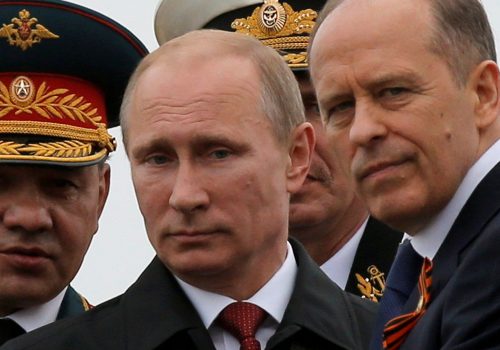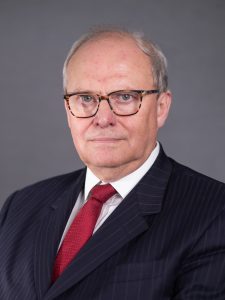Trying to understand Russia’s political system can be like trying to find a light-switch in a dark room. The lack of transparency in how the Kremlin operates makes it difficult both for observers and for political actors in Russia to predict and analyze the Russian government’s actions and policies. However, perhaps the single best way to understand how Putin’s Russia runs is to understand the Federal Security Service, or FSB—the successor to the old Soviet KGB once run by Putin—which now brings some of Russia’s leading officials to prominence. In Lubyanka Federation: How the FSB determines the politics and economics of Russia, a report by the Dossier Center newly released in English, deep insight into Russia’s security services combined with confidential sources placed highly in the Kremlin provide an unmatched look into how the cutthroat officers of the Soviet Union have bred a new generation of burgeoning kleptocrats setting the agenda in Russia.
After a presentation of the report, Irina Borogan, Investigative Journalist, Deputy Editor, Argentura.ru; Luke Harding, Senior International Correspondent, the Guardian; Charles McGonigal, Senior Vice President, Global Security & Life Safety, Brookfield Properties, Former Special Agent in Charge, Counterintelligence Division, New York Office, Federal Bureau of Investigation; Dr. Louise Shelley, Director, Terrorism, Transnational Crime and Corruption Center, George Mason University, discuss the influence of the FSB on life in Russia, and the implications this has on international policy towards the Kremlin. Ambassador John Herbst, Director, Eurasia Center, Atlantic Council, moderates the discussion.
RELATED experts

The Eurasia Center’s mission is to promote policies that strengthen stability, democratic values, and prosperity in Eurasia, from Eastern Europe in the West to the Caucasus, Russia, and Central Asia in the East.




